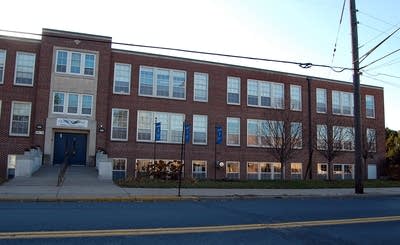Payment shift makes rough waters for charter schools
Go Deeper.
Create an account or log in to save stories.
Like this?
Thanks for liking this story! We have added it to a list of your favorite stories.

Charter schools in Minnesota are bracing for a cash flow crunch that could determine whether some survive.
In an accounting move that helps the state budget's bottom line, Gov. Tim Pawlenty shifted some funding payments for all schools this year, but charter schools can't access the same kinds of loans that traditional public schools can, and even when they do apply, banks are wary.
"The shift is a huge issue," said Nathan Davis, director of Quest Academy, a charter school in St. Louis Park. "It's taking, in our case, what would be a growing pain and it's created a potential illness of much greater magnitude that looked like it could be fatal, but it's not."
One family's story
Turn Up Your Support
MPR News helps you turn down the noise and build shared understanding. Turn up your support for this public resource and keep trusted journalism accessible to all.
Cindi Thompson moved her two children last year to Quest Academy. She said she immediately knew it was a good move, especially for her son Buddy.
"He has been a lot less anxious; he has been happier," Thompson said. "He has not once said 'I hate school,' which is what he used to say when he was in elementary school."
Thompson was shock a few weeks ago when she learned that Quest was in a dire situation.

"I don't think parents knew how bad it was," she said.
Teachers had taken a pay cut. Davis's run of sleepless nights only eased after parents responded with more than $50,000 in donations in three days. Quest, he said, was at the brink - but it won't close.
"We have a passionate parent base and we've had parents involved in raising a lot of money very quickly for this school and helping this school, potentially, with its ratings for credit as well," Davis said.
Davis admits Quest is to blame for some of its financial misfortunes. It opened last year with more than 200 students and dropped by more than 100 this year - a drop that meant less state funding. Davis said the school didn't respond quickly enough with the needed cuts.
Dealing with unallotment
Gov. Tim Pawlenty used his power of unallotment this summer to balance the state's budget. The state budget for schools was at the same level as last year; the shift moves 27 percent of that money into next fiscal year. That has left schools dipping into reserves to meet cash flow needs. When reserves dry up, schools have to take out loans.
Traditional public schools have access to credit that charter schools don't, even though charters are also considered public schools. Charters can't own property, so they have very little collateral - which makes them less desirable to banks. Charters also can't go to voters for a tax increase the way traditional public schools can.
Kate Barr heads the Nonprofit Assistance Fund, which works with banks to help charter schools find credit. She said early fall is usually when schools have the healthiest cash flow, but it drops off after that.
"I would hate to venture a guess, but I think there might be a very small handful of schools that have financial problems to start with, where this just might be the last straw," Barr said.
Barr said the next two months will be telling.
"Everyone's essentially right now in the middle of making decisions about extending credit," she said. "I think once we get through December, we're going to know if anyone's left without anything."
Barr predicts most charters will survive, but they'll likely need more budget cuts to pay for the interest and fees on the financing they get.
Eugene Piccolo said he's never seen a worse stretch for charters. He heads the Minnesota Association of Charter Schools and said the payment shift is one factor, but the banking crisis forced banks to tighten their own credit.
Piccolo's worst fear is a charter school closing suddenly mid-year, like Quest Academy almost did recently.
"It's one thing if schools close at the end of the year - it's much more orderly," Piccolo said. "But if schools would close because of financial crisis in the middle of a school year, it does affect kids' learning; it does affect families."
State education officials say they're monitoring the situation. They note the funding shift wasn't the one thing that made some charters so fragile - it exasperated the situation they were already in.
Back in St. Louis Park, Quest parent Cindi Thompson admits she started looking for other schools during those roughest days. But the crisis passed and the search was called off. Good thing, she said, because she never found anything.
Dear reader,
Political debates with family or friends can get heated. But what if there was a way to handle them better?
You can learn how to have civil political conversations with our new e-book!
Download our free e-book, Talking Sense: Have Hard Political Conversations, Better, and learn how to talk without the tension.




